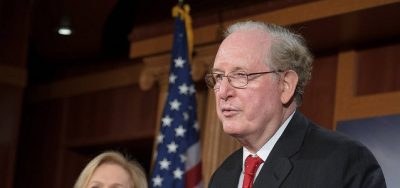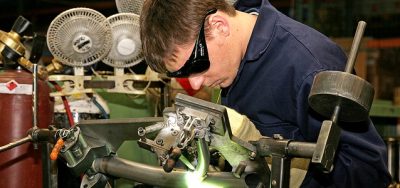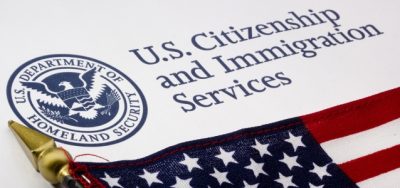Business and the Workforce
Immigrants not only bring diverse skills and perspectives to the U.S. workforce, they often fill employment gaps in crucial fields. We advocate for expanded work visas and related programs so our labor force can continue to benefit from immigrant workers and remain competitive in the global economy

Rebuilding Local Economies
Innovation, Skilled Immigration, and H-1B Visas in U.S. Metropolitan Areas Although immigration policy is debated at the national level, its impact is most often felt in local and regional communities. This is certainly true for the H-1B program, which is routinely studied at the national level, but cannot be fully understood without driving down to examine the role of H-1B workers at the metropolitan and local levels. New research at this more specific level of analysis suggests that current H-1B policies must be made both flexible and nuanced. There is no “one size fits all” approach to the recruitment, hiring, and retention of high-skilled foreign workers. As lawmakers consider changes to the H-1B program, including the creation of a High Skilled Jobs Demand Index, it is essential to remember that demand for H-1B workers in many metropolitan areas is high, varies by industry, and has ripple effects throughout a regional economy. Thus, predicting and calculating the need for H-1B workers requires an understanding of the dynamics at the metropolitan level. Metropolitan Area Demand for High-Skilled Workers is High, Especially in Innovation Industries Innovation-intensive metropolitan areas tend to have higher rates of patenting, lower unemployment rates, and higher demand for high-skilled workers since patenting growth is correlated with job growth, population growth, and increases in educational attainment. Read More

The Important Role of Immigrants in America’s Innovation Economy
This week, the U.S. Senate Committee on Commerce, Science, and Transportation weighed in on immigration reform with a hearing on the role of immigrants in America’s innovation economy. Remarks from Sens. Rockefeller (D-WV) and Thune (R-SD) noted the contributions of immigrant innovators and entrepreneurs. Immigrants in the United States were named as inventors or co-inventors on 25.6 percent of international patent applications filed from the U.S. in 2006. Furthermore, temporary workers and permanent residents made contributions to over half of the international patents filed by several large, multi-national companies. Temporary and permanent foreign-born workers represent at least 24 percent of the nation’s scientists and 47 percent of engineers with doctoral degrees. Read More

New Heritage Report Ignores Broad Consensus on Economic Benefits of Reform
Today, the Heritage Foundation released a report that attempts to assess the fiscal costs associated with legalizing the 11 million unauthorized individuals living in the United States. The new report is similar to a 2007 study, which was widely criticized at the time of publication and continues to be refuted today by conservatives like Republican budget hawk Paul Ryan, former head of the Congressional Budget Office under President Bush, Douglas Holtz-Eaken, anti-tax activist Grover Norquist and the libertarian Cato Institute. In addition, the Bi-Partisan Policy Institute’s Immigration Task Force (which includes Condoleeza Rice and Haley Barbour) remarked on the report after its release noting, “we strongly believe that this study’s modeling and assumptions are fundamentally flawed because they do not account for the many contributions that an appropriately reformed immigration system can afford our economy and our country.” Read More

Keeping U.S. High-Skilled Temporary Worker Visa Programs Workable
When analyzing higher-skilled guest worker visa programs, such as the H-1B and L-1 programs, critics often fail to acknowledge the very different and important purposes that these programs were designed to serve, and the complicated requirements already in place to protect against abuse or exploitation. There is no denying that we can and should improve these programs and the strategies used to enforce them. However, given the well-established economic benefits of these programs, and the challenges employers face finding highly skilled workers, particularly in technical fields, it is essential that any proposed reforms not impose restrictions that may make these programs completely unworkable. Read More

Why There Are Not Enough STEM Workers in the U.S. Labor Market
Occasional research, such as a report released last week by the Economic Policy Institute, suggests the U.S. has a sufficient supply of science, technology, engineering, and mathematics (STEM) graduates and workers. However, these conclusions are at odds with a growing number of expert analyses that find the U.S. does in fact face significant challenges in meeting the growing needs of our expanding knowledge-based economy. Here is a sampling of the evidence: Read More

Why There Are Not Enough STEM Workers in the U.S. Labor Market
Occasional research, such as a report released last week by the Economic Policy Institute, suggests the U.S. has a sufficient supply of science, technology, engineering, and mathematics (STEM) graduates and workers. However, these conclusions are at odds with a growing number of expert analyses that find the U.S. does in fact face significant challenges in meeting the growing needs of our expanding knowledge-based economy. Here is a sampling of the evidence: Read More

High-Skilled Immigration and Entrepreneurship in the Senate’s Immigration Bill
On the road to reform, the Senate’s Border Security, Economic Opportunity, and Immigration Modernization Act contains several changes and new provisions for skilled immigration and entrepreneurship. Specifically, the bill provides balanced reforms to the H-1B nonimmigrant visa for high-skilled individuals, various provisions for highly skilled individuals through permanent employment-based immigration, and a new INVEST visa for entrepreneurs. Read More

H-1B Visa Cap Reached in Five Days
U.S. Citizenship and Immigration Services (USCIS) announced on Friday, April 5, just five days after the H-1B high-skill “visa race” began, that they had received more applications than could be approved under the cap of 65,000 for fiscal year 2014. Additionally, USCIS stated they had received more than 20,000 H-1B petitions on behalf of individuals who are exempt from the cap. As such, USCIS will no longer be accepting additional H-1B petitions for fiscal year 2014. At this point, USCIS will use a random selection “lottery” process to allocate the 65,000 visas from the applications received through April 5. Read More

Small Business Owners Support Comprehensive Immigration Reform
Small business owners throughout the United States have a pulse on the goings on within their local communities. They recognize that immigrant workers and their families are also consumers, which helps to create additional jobs and bolster local economies. Within that context, two new polls highlight small business owners’ perspectives of immigration and its positive effects on the ground in communities. Overwhelmingly, the surveys show small business owners, regardless of political affiliation, support comprehensive immigration reform. Read More

Labor and Business Strike Immigration Deal on Worker Program
Over the weekend, the U.S. Chamber of Commerce and the AFL-CIO reached an agreement on a new type of immigrant worker program that has the potential to reshape the way temporary and permanent immigration visas contribute to American immigration policy. Although this is commonly referred to as future immigration flow, it should not be confused with other debates over increasing visas for high skilled workers or increasing employment based green cards. Instead, the agreement represents an attempt to reshape how business and labor will deal with the incredibly complex issues that are part of filling the demand for less-skilled labor in the United States. In the short term, it sets up a series of concepts that both sides would be willing to support in comprehensive immigration reform—but the Gang of Eight still has to convert those concepts into workable legislation. Read More
Make a contribution
Make a direct impact on the lives of immigrants.
